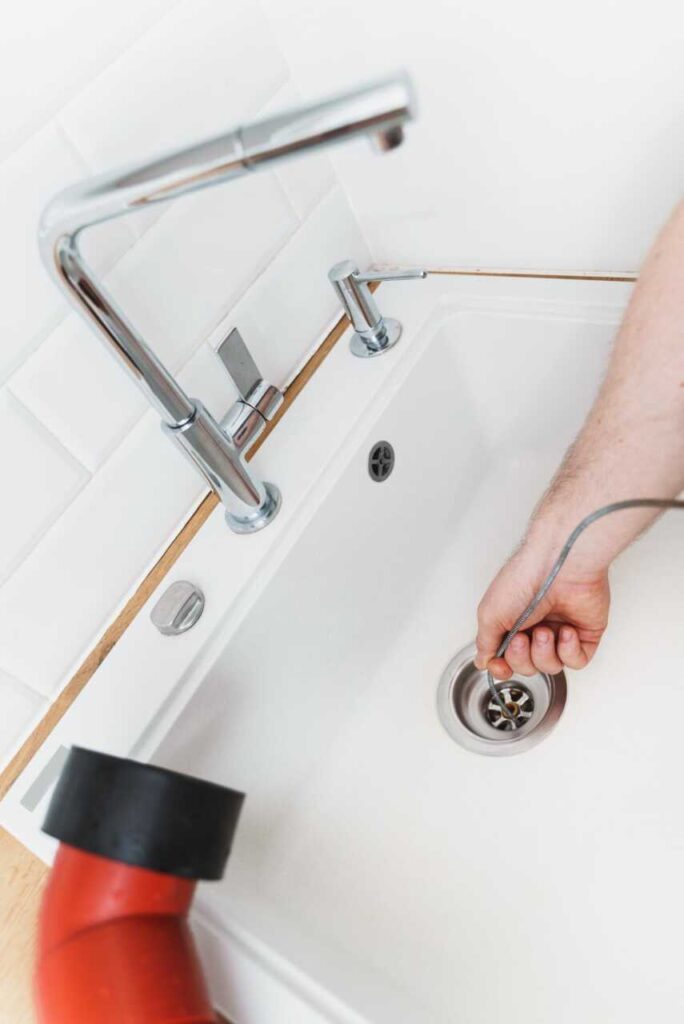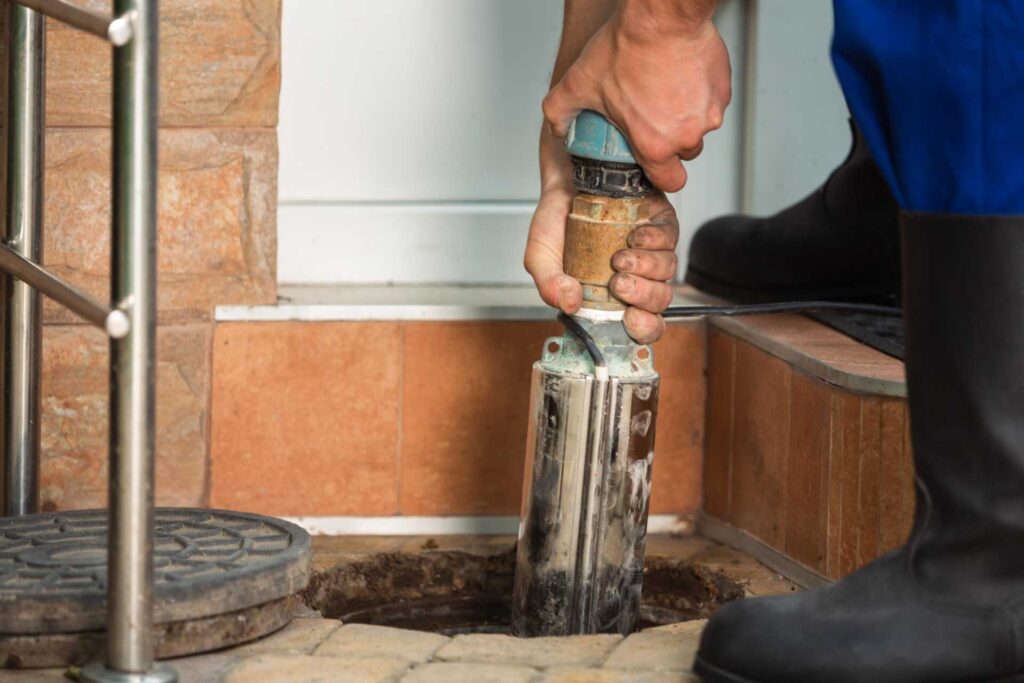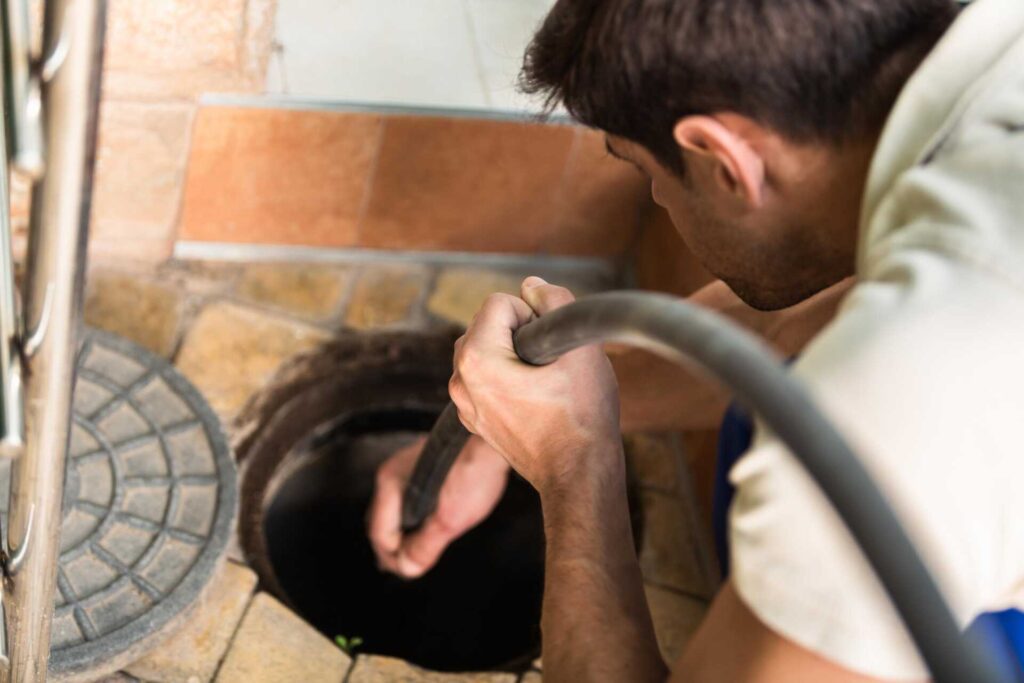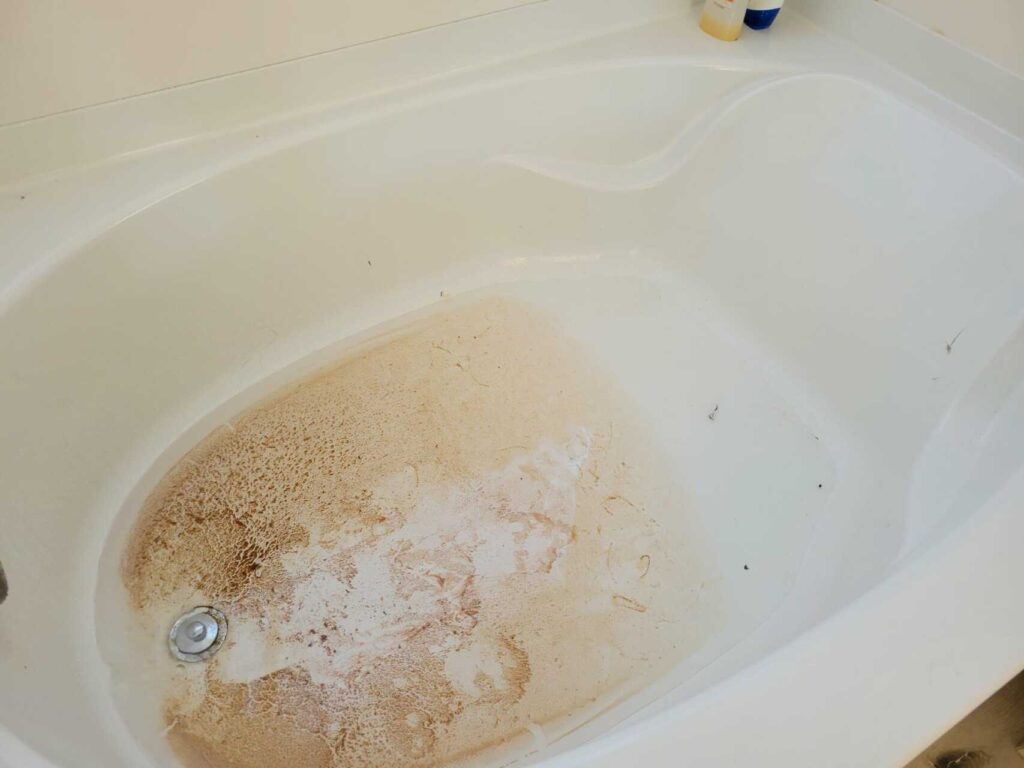
Contents
You might think sewer maintenance is too costly to handle, but it doesn’t have to be. By adopting a few straightforward and budget-friendly practices, you can keep your sewer system in check without spending a fortune. From using natural cleaners to performing simple DIY repairs, there are plenty of strategies that can save you money in the long run. Curious about how these tips can help you maintain a healthy sewer system while sticking to your budget? Let’s explore some effective approaches that could make a difference.
Key Takeaways
Schedule regular maintenance checks and inspections at least twice a year to catch issues early and avoid costly repairs.
Use eco-friendly cleaning solutions like baking soda and vinegar to maintain drains without harming pipes or the environment.
Monitor water usage closely to identify leaks and adjust habits, which can help prevent sewer issues and promote efficiency.
Invest in basic plumbing tools, enabling you to handle minor repairs and clogs yourself, saving on professional service costs.
Set aside a budget for sewer maintenance based on past issues and current system conditions to prepare for future expenses.
Regular Drain Cleaning
Regular drain cleaning is vital for maintaining a healthy sewer system and can prevent costly repairs down the line. By prioritizing this task, you’re not just ensuring the smooth flow of wastewater; you’re also safeguarding your home from the disruptions and expenses that come with drain blockages. Implementing a regular maintenance schedule allows you to catch potential issues before they escalate, ensuring your plumbing system operates efficiently.
To effectively prevent drain blockages, you should consider scheduling drain cleaning at least twice a year. This proactive approach helps to eliminate buildup from grease, hair, and other debris that naturally accumulate over time. A thorough cleaning process often includes hydro jetting, where high-pressure water streams clear away stubborn clogs and buildup, restoring your pipes to ideal condition.
Additionally, it’s important to inspect the condition of your sewer lines regularly. You can do this through video camera inspections, which provide a clear view of any emerging problems. By integrating these inspections into your regular maintenance schedule, you’ll be able to identify cracks or tree root intrusions early, preventing potential disasters.
Don’t underestimate the value of a clean drain system. By investing time and effort into regular drain cleaning, you’re enhancing your home’s plumbing efficiency and fostering a sense of community responsibility. After all, a healthy sewer system contributes to the well-being of everyone in your neighborhood. Start your maintenance journey today, and keep your drains flowing smoothly.
Use Natural Cleaners
Using natural cleaners for your sewer maintenance protects the environment and saves you money. Common ingredients like baking soda and vinegar provide effective, cost-efficient solutions that tackle clogs and buildup. By incorporating these eco-friendly options into your routine, you can enhance preventative maintenance and prolong the life of your plumbing system.
Eco-Friendly Cleaning Solutions
While many commercial cleaners contain harsh chemicals that can harm both your plumbing and the environment, opting for eco-friendly cleaning solutions can effectively maintain your sewer system without the negative side effects. By using eco-friendly products, you protect your plumbing and contribute to sustainable practices that benefit the planet.
Consider using vinegar and baking soda as a powerful duo for unclogging drains and eliminating odors. These natural ingredients dissolve buildup without harming your pipes. For routine maintenance, a mixture of lemon juice and water can freshen your drains and leave a pleasant scent.
Always keep an eye on what you flush down your toilets and pour down your sinks. Avoid using products with synthetic fragrances or antibacterial agents, as these can disrupt the natural balance of your plumbing system. Instead, choose biodegradable options that are safe for both you and the environment.
Cost-Effective Ingredients
To maintain your sewer system without breaking the bank, consider incorporating cost-effective, natural cleaners into your routine. Two highly effective and budget-friendly ingredients are vinegar and baking soda. These common household items can work wonders for your sewer maintenance.
Start with a vinegar solution. Pour about two cups of vinegar down your drains and let it sit for 30 minutes. This acidic solution helps dissolve mineral deposits and grease buildup, improving flow and reducing odors. The natural antibacterial properties of vinegar also contribute to a healthier sewer system.
Next, follow up with baking soda. Sprinkle one cup of baking soda down the drain after the vinegar. This will create a fizzing reaction that further breaks down any remaining debris and clogs. Allow it to sit for another 30 minutes before flushing it with hot water. This combination cleans effectively and leaves your pipes fresh.
Using these natural cleaners regularly is a simple and efficient way to maintain your sewer system. Plus, it aligns with eco-friendly practices while being easy on your wallet. You’ll feel a sense of accomplishment knowing you’re taking care of your home sustainably.
Preventative Maintenance Benefits
By incorporating natural cleaners like vinegar and baking soda into your sewer maintenance routine, you can greatly enhance the longevity and efficiency of your plumbing system. These ingredients serve as effective preventative measures against clogs and buildup, reducing the need for harsh chemicals that can harm your pipes and the environment. Regular use of these natural cleaners can help dissolve grease and mineral deposits, keeping your drains flowing smoothly.
Additionally, utilizing these eco-friendly options contributes to long-term savings. They’re cost-effective, easily accessible, and safer for your home and family. By committing to a routine that includes these natural solutions, you can prevent costly plumbing emergencies down the line.
Moreover, adopting these sustainable practices fosters a sense of community among like-minded homeowners who value both their health and the environment. You’re not just taking care of your plumbing; you’re part of a movement towards greener living. Remember, simple actions can lead to significant benefits. Effective sewer maintenance doesn’t have to break the bank—embracing natural cleaners is a smart choice for protecting your home and ensuring a resilient plumbing system.
Install Drain Screens
Regularly installing drain screens is a vital step in maintaining your sewer system and preventing costly clogs. By incorporating this simple yet effective measure, you can greatly reduce the risk of debris buildup, ensuring smooth flow through your pipes. There are several drain screen types available, including mesh screens, perforated covers, and solid strainers, each designed to cater to specific drainage needs.
Choosing the right type of drain screen is important. Mesh screens work wonders for catching hair and small debris, while perforated covers are excellent for larger particles. Solid strainers can handle substantial waste, making them ideal for kitchen sinks. No matter which type you select, the benefits of installation are clear: you’ll minimize the chances of blockages, reduce maintenance costs, and extend the life of your sewer system.
The installation process is straightforward, making it a perfect DIY project for homeowners. You can easily fit these screens over your drains, ensuring they’re secure and effective. Regularly checking and cleaning your drain screens is equally important, as it ensures peak performance and keeps your drains running smoothly.
Monitor Water Usage
Monitoring water usage is a proactive approach that can greatly impact sewer maintenance and overall system efficiency. By keeping an eye on your water meter, you can identify usage patterns that might indicate potential issues before they escalate. Understanding how much water you use daily can help you spot any irregularities that could lead to costly sewer repairs.
To make the process easier, consider tracking your water consumption habits. Use the table below to help categorize your typical water usage:
| Activity | Average Gallons Used | Frequency per Week |
|---|---|---|
| Showering | 10-25 | 7 |
| Washing Dishes | 5-10 | 7 |
| Laundry | 20-40 | 3 |
| Lawn Watering | 100-200 | 1 |
By examining this information, you can adjust your habits as needed. For instance, if you notice a spike in your weekly usage, it might be time to investigate potential leaks or inefficiencies.
Regularly monitoring your water meter and adjusting your usage patterns saves money and helps maintain a healthy sewer system. Remember, small changes in your water consumption can lead to significant savings and enhanced sewer performance. Stay engaged with your water usage, and you’ll contribute to a more sustainable and efficient home system.
Schedule Routine Inspections
Scheduling routine inspections is essential for maintaining your sewer system’s integrity. Regular assessments help you identify signs of potential problems early, preventing costly repairs down the line. By exploring cost-effective scheduling options, you can ensure your system remains in peak condition without breaking the bank.
Importance of Regular Inspections
While you may not think about your sewer system often, neglecting regular inspections can lead to significant problems down the line. Implementing a routine inspection schedule is essential for extending your sewer lifespan and preventing costly repairs. Regular inspections allow you to identify issues before they escalate, ensuring that your sewer functions efficiently and effectively.
The recommended inspection frequency is at least once every two years, but more frequent checks may be necessary depending on your system’s age and local environmental conditions. By adhering to this schedule, you can catch minor problems, such as root intrusions or buildup, before they threaten the integrity of your sewer line.
Moreover, routine inspections help maintain a healthy home environment. A well-maintained sewer system minimizes the risk of unpleasant sewage backups and associated health hazards. You’ll feel a sense of belonging in your community, knowing that you’re taking steps to protect your home and your neighbors from potential sewer issues.
Investing time in regular inspections safeguards your property and contributes to the overall well-being of your neighborhood. Stay proactive, and your sewer system will reward you with a longer, trouble-free lifespan.
Signs of Potential Problems
Have you noticed any unusual changes in your plumbing? It’s vital to pay attention to these signs, as they can indicate potential problems that need immediate attention. One common issue is clogged drains. If water is draining slowly or backing up, it may signal a blockage in your sewer line. Don’t ignore these warning signs; addressing them early can save you from more extensive repairs down the line.
Another red flag to watch for is sewer odors. If you smell unpleasant sewer gas in or around your home, it could mean there’s a break in the sewer line or a problem with your venting system. This not only poses health risks but can also lead to costly repairs if left unchecked.
Scheduling routine inspections is essential for identifying these issues before they escalate. A professional can assess your plumbing system, helping you detect clogs and odors early. By staying proactive, you can maintain a healthy, functional sewer system that protects your home and family. Remember, you’re not alone in this; many homeowners face similar challenges, and seeking help is a smart step toward effective sewer maintenance.
Cost-Effective Scheduling Options
Regular inspections can greatly reduce long-term costs associated with sewer maintenance. By scheduling routine check-ups, you can identify potential issues before they escalate into costly repairs. Opt for flexible scheduling options that fit your lifestyle—whether it’s biannual, seasonal maintenance, or additional frequent inspections based on your system’s needs.
Consider aligning your inspections with seasonal changes, as certain times of the year may expose your system to specific stressors. For instance, performing inspections in the spring can help you address any winter damage, while fall inspections can prepare your system for heavy rains.
Don’t hesitate to communicate your preferences to your service provider. They can often accommodate your needs, ensuring that maintenance fits seamlessly into your routine. Furthermore, establishing a consistent schedule fosters a sense of community; you and your neighbors can collaborate, sharing insights and possibly arranging group inspections for better rates.
Investing in regular inspections protects your property and enhances community awareness about sewer health. Ultimately, these proactive measures will help you maintain a reliable system while keeping your budget in check.
Avoid Chemical Drain Cleaners
Since chemical drain cleaners may seem like a quick fix for clogged pipes, it’s essential to understand their potential drawbacks. While they can provide immediate relief, these products often compromise your drain health in the long run. Using chemical alternatives is a wiser choice for maintaining your plumbing system and ensuring its longevity.
Here are some reasons to avoid chemical drain cleaners:
- Pipe Damage: Harsh chemicals can corrode pipes, especially older ones. This damage can lead to leaks and costly repairs.
- Health Risks: The fumes from these cleaners can irritate your respiratory system and skin, posing health hazards for you and your family.
- Environmental Impact: Many chemical drain cleaners contain toxic substances that can harm aquatic life when they enter the water system. Opting for eco-friendly solutions helps protect the environment.
- Temporary Solutions: While these cleaners might clear a clog, they often don’t address the underlying issues that caused the blockage, leading to recurring problems.
Instead of relying on these harmful substances, consider using natural alternatives like baking soda and vinegar or enzyme-based cleaners. These chemical alternatives are safer for your plumbing and promote better drain health. By making informed choices, you can effectively maintain your sewer system without compromising your well-being or the environment.
Know Your System
Understanding your sewer system is essential for effective maintenance and prevention of costly issues. Every homeowner should familiarize themselves with their specific sewer system type—whether it’s a municipal sewer system, a septic system, or a combined sewer system. Each type has distinct characteristics and maintenance requirements that you need to understand to keep everything running smoothly.
If you have a municipal sewer system, it’s important to know how your local waste treatment facility operates and what regulations apply. Typically, this system relies on gravity for waste transport, so keeping your drains clear and free of obstructions is critical. On the other hand, if you own a septic system, understanding its components—like the tank, drain field, and soil absorption—is key. Regular inspections and pump-outs are necessary to prevent overflow and contamination.
Familiarize yourself with the signs of potential sewer issues specific to your system type. For example, if you notice slow drains or foul odors, these could indicate a blockage or failure. It’s also beneficial to know the location of your cleanouts and access points, as this can aid professionals during routine maintenance or emergencies.
DIY Minor Repairs
Knowing how to handle common issues can save you time and money when it comes to minor sewer repairs. To tackle clogs and leaks effectively, you’ll need specific tools, such as a plumber’s snake and pipe sealant. With the right approach, you can manage these repairs confidently and keep your system running smoothly.
Common DIY Repairs
While sewer maintenance may seem challenging, many common DIY repairs can help you tackle minor issues effectively. By addressing these problems quickly, you can save money and avoid larger issues down the line. Here are four common DIY repairs to evaluate:
Fixing Pipe Leaks: Use epoxy putty to seal small leaks. Clean the area thoroughly, apply the putty, and let it cure as directed.
Clearing Minor Clogs: For a quick fix, use a plunger or a mix of baking soda and vinegar. Pour the mixture down the drain, wait 30 minutes, then flush with hot water.
Maintaining Drainage: Regularly check and clean your gutters and downspouts to prevent water from pooling and causing sewer backups.
Clog Prevention: Install mesh screens over drains to catch hair and debris. This simple step can greatly reduce the chances of clogs forming.
Tools You’ll Need
To successfully tackle minor sewer repairs, having the right tools at your disposal is essential. Start with a basic set of plumbing tools, including a plunger, pipe wrench, and a pair of adjustable pliers. These will help you address common clogs and leaks effectively. A drain snake is also invaluable for reaching deeper blockages in your sewer lines.
Next, you’ll need maintenance supplies like Teflon tape, pipe sealant, and replacement washers. These materials are vital for ensuring watertight seals when you’re working on joints or connections. A bucket can catch any excess water, preventing mess during your repairs.
For safety, don’t forget rubber gloves and safety goggles. They protect you from debris and harmful substances that may be present in the sewer system. A flashlight is also handy for illuminating dark spaces under sinks or in crawl spaces, allowing you to inspect areas properly.
Proper Waste Disposal
Proper waste disposal is essential for maintaining a healthy sewer system and preventing costly repairs. By following effective disposal methods, you can considerably reduce the risk of clogs and backups that lead to extensive damage. Here are four critical practices you can adopt:
Separate Your Waste: Always separate organic waste from non-biodegradable materials. Use compost bins for food scraps and yard waste, which can decompose naturally.
Use Trash Bins Wisely: Dispose of items like paper towels, feminine hygiene products, and dental floss in the trash, not the toilet. These items don’t break down and can cause blockages.
Avoid Chemical Drain Cleaners: Instead of chemical cleaners, choose enzyme-based products or natural alternatives for minor clogs. Chemical cleaners can damage your pipes and the environment.
Educate Your Household: Make sure everyone in your home understands proper waste disposal methods. Share the importance of keeping non-flushable items out of the toilet to maintain the integrity of your sewer system.
Create a Maintenance Budget
Establishing a maintenance budget for your sewer system is essential in preventing unexpected costs from repairs or emergencies. A well-planned budget allocation allows you to foresee and manage your expenses effectively. Start by evaluating the current condition of your sewer system. This involves reviewing any past issues, identifying potential risks, and determining the frequency of maintenance tasks required.
Once you have this information, create a spreadsheet to track your expenses. This should include routine maintenance, such as inspections and cleanouts, as well as potential emergency repairs. By keeping your expense tracking organized, you’ll gain insights into your spending patterns and can adjust your budget accordingly.
Consider setting aside a specific percentage of your annual income dedicated to sewer maintenance. This proactive approach cushions the impact of sudden repairs and fosters a sense of security within your household. Remember, investing in regular maintenance can save you from costly emergencies in the long run.
Additionally, don’t hesitate to seek advice from professionals. They can provide valuable insights into industry standards and help you make informed decisions about your budget allocation. Joining local homeowner associations or online forums can also be beneficial, as you’ll connect with others who share similar experiences and can offer support.
Ultimately, a well-structured maintenance budget empowers you to take control of your sewer system’s health, fostering a sense of belonging within your community of responsible homeowners.
Review
By following these budget-friendly tips for sewer maintenance, you can keep your system running smoothly without draining your wallet. Think of your sewer system as a garden; with regular care and attention, it flourishes and avoids costly issues. Implementing these practices saves you money and fosters a sense of community responsibility. So, roll up your sleeves and take charge—your sewer system will thank you, and your wallet will too!



